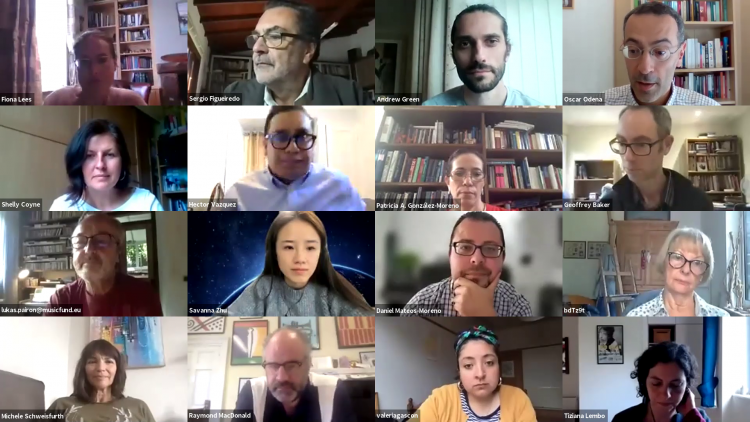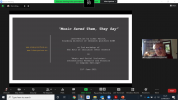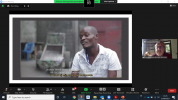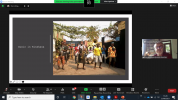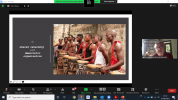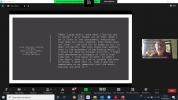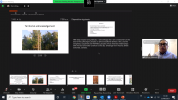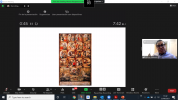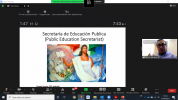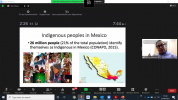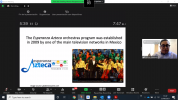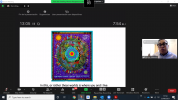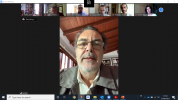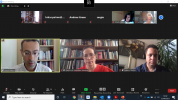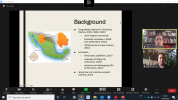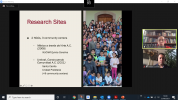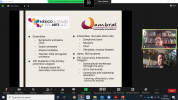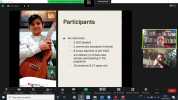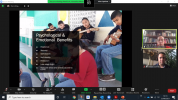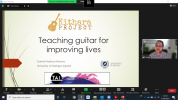Online event report: ‘Music and Social Inclusion: International Research and Practice in Complex Settings
On June 21st, 2021, 3-5pm UK time, practice and research specialists discussed social music projects from five countries, and a study of Indigenous music, at the 2nd Workshop of The Arts of Inclusion (TAI) network. This event was held online and was free of charge.
Contributors included Sergio Figueiredo (Brazil), Patricia González-Moreno and Rubén Carrillo (Mexico), Geoff Baker (UK), Lukas Pairon (Belgium), Shelly Coyne with Raymond MacDonald (UK), Daniel Mateos-Moreno (Spain) and Hector Vázquez (Mexico/Canada). They drew on their contributions for a forthcoming Routledge book. TAI activities are supported by AHRC, RSE and SFC.
Introduction by Andrew Green and Oscar Odena
I. ‘Music education in a Brazilian social project: artistic, social and academic outcomes’, by Sergio Figueiredo, retired Associate Professor at State University of Santa Catarina, Brazil.
The social project entitled Bairro da Juventude, developed in the city of Criciúma, in the south of Santa
Catarina state - Brazil, offers musical activities for children and young people in situation of social
vulnerability. Musical activities were established in the early 2000s, with a choral project, which expanded
over the years, incorporating teaching of orchestral and band instruments. Currently the project serves
about 500 children, who benefit artistically, socially and academically from the musical experiences
developed.
II. ‘Music Saved Them, They Say’, by Lukas Pairon, Director of the international research platform on the Social Impact of Making Music (SIMM), Belgium.
Lukas Pairon was for 20 years the founding director of the Ictus ensemble and founded the humanitarian
organization Music Fund. His presentation focussed on the role music can possibly play in social and
community work. From 2012 to 2016 Lukas studied social music projects in Kinshasa, DR Congo, with socalled ‘witch’-children living in the streets and with former members of violent gangs. Lukas founded together with practitioners and researchers the international research platform SIMM, which since 2017 supports the development of research in this field. Following his research in Kinshasa he published the monograph ‘Music Saved Them, They Say’ (Routledge, 2020).
III. “There is no global justice without global cognitive justice”: envisioning music making through the ecologies of knowledges in the context of Mexico, by Hector Vázquez, doctoral researcher at the University of Victoria, Canada.
In this contribution, Hector used ecologies of knowledge, a concept developed by Boaventura de Sousa
Santos (2014), as a framework to discuss the need to understand, respect, and value diverse manifestations
of music making and their transmission. He presented narratives of Huasteco music culture bearers
regarding the importance that music making has in their culture as a crucial component to preserve and
transmit Huasteco worldview. The relevance of embracing music with Indigenous roots was discussed in
the context of Mexico’s educational system as a tool to foster pride and appreciation for local cultures.
IV. ‘Arts for Peace Education in Chihuahua, Mexico: Efforts, challenges and outcomes of two community music programs’, by Patricia A. González-Moreno and Rubén Carrillo, Autonomous University of Chihuahua, Mexico.
In the last decades, Mexico has been profoundly affected by the drug war and the resulting violence. In
order to diminish its negative sociocultural impact, several initiatives have aimed to use the arts for building
peace and reconstruct societal bonds. In this presentation, we describe the current state of arts-based
peacebuilding programs in Mexico and discuss an ethnographic study of two community music programs
in Chihuahua, Umbral Music Program and NUCAM Quinta Carolina, their pedagogical approaches for social
inclusion and cohesion, the socio-cultural and musical outcomes and also the hindrances and constraints
to fulfil their social purpose.
V. ‘Kithara project: teaching guitar for improving lives’, by Daniel Mateos-Moreno, University of Malaga, Spain.
“Kithara” is the name of a non-profit project that brings instruments and delivers music education based
on playing the guitar to underserved communities in Mexico, Boston and New Mexico. This project enriches
the lives of dozens of youths who, otherwise, could not simply buy decent instruments or pay for lessons.
Moreover, as a unique feature, the project is carried out by a collective of internationally acclaimed classical
guitarists. This paper draws on a discussion of an original case-study focussed on this project, which will be
published as chapter in the forthcoming book for Routledge.
VI. ‘I Just Feel I Belong Here: Homeless Choirs and Singing Groups in the UK and Brazil’, by Shelly Coyne, Policy and Participation Manager at Cyrenians, with Raymond MacDonald, University of Edinburgh.
Homelessness is an international emergency which has a devastating impact on wellbeing, self-worth, and
the potential for individuals to thrive. However, when singers with experience of homelessness participate
in choirs, it can enable inclusion, group cohesion and cross-community integration through removal into a
sanctuary-type music space. Here singers experience a sense of belonging and feeling part of a family.
Within this safe space they can engage in critical identity work, challenge the stigmatising homeless persona
and reinforce their musical self. This new able identity is further strengthened through performances, being
validated by an audience, which in turn challenges societies perception of this social condition.
VII. ‘Afterwork’, by Geoff Baker, Royal Holloway University of London.
Geoff Baker presented the Afterwork of the forthcoming book and closed the online event with his input.
Questions & Discussion
- Log in to post comments


